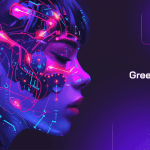Following a recent U.S. ruling that deemed Google’s search monopoly illegal, experts suggest that the rise of generative AI technology, particularly OpenAI’s ChatGPT, is rapidly diminishing Google’s dominance.
On Monday, U.S. District Judge Amit Mehta ruled that Google violated antitrust laws by spending billions to secure exclusive agreements with developers, carriers, and equipment manufacturers to become the default search engine.
Arvind Jain, a former Google engineer, reflects on how evolving artificial intelligence (AI) tools could outpace this regulatory effort to curb Google’s dominance in the search market. He stated, “I think for Google right now, AI [is] a much bigger deal than the ruling. AI is fundamentally changing how the search product also works.”
A former senior Google executive also shared a prediction, saying, “AI is going to advance more swiftly than the DOJ can act against Google.”
Google’s Hasty Missteps
Google’s recent missteps hinder its potential to compete in the AI world despite controlling approximately 90% of the web search market. Its AI Overviews feature produced several inaccuracies, including misleading suggestions that users could consume glue.
This kind of blunder has prompted criticism of Google’s prioritization of spewing out new features hastily over information accuracy, and the dynamics of its long-standing partnership with Apple have come into focus.
Apple and Google have long been benefiting each other, with Google being the default search engine for Apple devices. However, as both companies have evolved, their interests have diverged. Apple now focuses on enhancing user privacy and embracing AI technologies in its ecosystem.
The recent ruling can expedite Apple’s severance of ties with Search as the company collaborates with OpenAI to integrate AI tools into its devices. This new partnership signals a potential end to the era of preferential treatment for Google as Apple explores non-exclusive deals to give other competitors a chance.
OpenAI’s recent launch of its own AI-enhanced search engine, SearchGPT, marks a significant step into this potential. Much like what Rebecca Wettemann, CEO of Valoir, said, “The biggest threat to Google may be Google itself – key to adoption of any AI is trust, and its original missteps with Search Overviews showed that Google’s engineers were focused more on rapid releases than getting it right as it tries to keep up with the pace of OpenAI and others.”
The Future of Search
The company has expressed its intention to appeal the decision. Kent Walker, Google’s President of Global Affairs, stated that the ruling acknowledges the company’s status as the leading search engine but argues that it should not be penalized for being easily accessible.
“We appreciate the Court’s finding that Google is ‘the industry’s highest quality search engine’,” Walker said. “Given this, and that people are increasingly looking for information in more and more ways, we plan to appeal. As this process continues, we will remain focused on making products that people find helpful and easy to use.”
He also pointed out that it could have significant implications for the company’s operations, potentially requiring changes to its distribution rules, which are critical to maintaining market dominance.
On the other hand, White House Press Secretary Karine Jean-Pierre stated that the pro-competition ruling represents “a victory for the American people,” emphasizing that “Americans are entitled to an internet that is free, fair, and fosters competition.”
Richard Socher, CEO of You.com, added, “No one has really made a big dent into Google search dominance yet… we’ll have to see if this will be yet another domino piece that will fall into place to actually give consumers some more choices, real choices.”





















